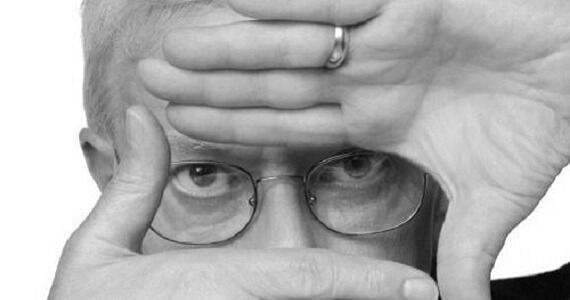It's been two years since fabled film critic Roger Ebert made waves in the gaming industry, asserting that video games would never be art. Since then (and after somewhat of a mea culpa), his Twitter feed has remained the occasional source of smaller ripples - jabs alluding to a general lack of interest in the medium that still manage to stir up a segment of the gaming public.
Yesterday yielded another example of the Ebert Paradigm, as the writer expressed interest for an article written to criticize Naughty Dog's The Last of Us - catching heat for his own views as a result.
The story begins in the online New York news publication Capital, where on Wednesday, Stephen Boone posted an editorial responding to the excited E3 reception for The Last of Us' gameplay presentation. Boone, who didn't attend the event but replayed its live feed, uses The Last of Us to expand on a larger claim that the industry is being diminished by "loud, assaultive, photorealistic game design that rewards wispy attention spans while demanding minimal problem-solving skills of its players."
Now for readers who've actually been following The Last of Us throughout its development - learning about Naughty Dog's onus on stealth and survival; the unlikely (yet intimate) bond that develops between Joel and Ellie; and the fact ammo is in rare supply in its post-apocalyptic milieu - the argument Boone tries to establish may seem a bit stretched, especially when he tries to cast the game in the same "typical shooter" lot as Call of Duty: Modern Warfare 2.
httpv://www.youtube.com/watch?v=8ZYkj0glnqs
Something tells us Roger Ebert doesn't fall in to that demographic. It didn't take long for the critic to give Boone's piece a shout-out, tweeting shortly after the article ran in praise of Boone's writing skills. Ebert withheld personal judgement on The Last of Us (he was arriving at his character limit) but many saw the plug for Boone and the article as an endorsement of the ideas they presented - including the team at Naughty Dog.
Both Evan Wells, co-founder of Naughty Dog, and Neil Druckmann, creative director of The Last of Us, took Ebert's tweet to resemble an opinion and responded over the social network in respectful disagreement - both with a spate of replies taking a tone like this one, from Wells:
"I've the utmost respect for @ebertchicago so I hope he takes another look @
#TheLastofUs b4 dismissing it. We're trying something different."
Ebert remained adamant, however, that booning Boone's piece didn't reflect a stance of his own; he didn't tweet more articles in praise of The Last of Us or the video game industry, but he did try to reassure his neutrality to Wells and Druckmann:
"To @evan_wells and @Neil_Druckmann. I have no opinion on your game. I tweeted Boone's article. Was that dissing you?"
Wells replied accordingly within the hour.
"@ebertchicago No attack intended. I respect your opinion & feel you’d enjoy the games we make @NaughtyDog if you had the chance to play them...
"We thought by tweeting the piece & complimenting Boone that you shared his opinion. The game is more than he credited us with."
The conversation seems to have been brought to an amicable end, but it's not the first time Ebert has *cough* not-so-subtly *cough* subtly embedded his attitude towards games in tweeting the opinions of others. He might not have any specific qualms about The Last of Us - he's still a full-time critic within his own industry - but to say he didn't see a colleague's well-written piece maligning it and didn't decide to give that piece some press? That could be harder to pretend.
No doubt many find it frivolous - listening to a self-admitted non-gaming critic critique games - yet Ebert's stature within the larger scope of American culture has allowed his words to make headlines nonetheless. Ranters, do you think Ebershow the lack of imagination the piece describes?
The Last of Us releases in 2013, exclusively for the PlayStation 3.
-
Follow me on Twitter@Brian_Sipple.
Source: Twitter (Roger Ebert, Evan Wells, Neil Druckmann), Capital [via Roger Ebert]


